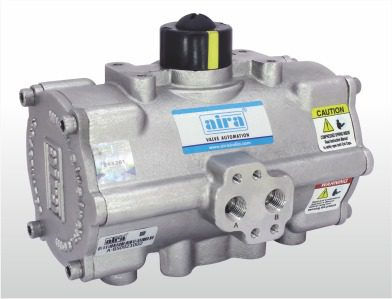Valve Automation in India: Everything You Need to Know
- Aira Euro Automation
- Feb 14, 2023
- 4 min read
Valve automation is the process of using automation technology to control valves. This can be done for various reasons, including improving safety, increasing efficiency, and reducing costs.
In India, valve automation is becoming increasingly popular as businesses look for ways to improve their operations. Several factors to consider when planning a valve automation project in India, but the potential benefits make it a worthwhile investment.
This blog post will explore the topic of valve automation in India, including what it is, the benefits of automating valves, the Indian market for valve automation, and important considerations for a successful project.
Introduction: What is Valve Automation?
Valve automation uses automated valves to control the flow of fluids in a piping system. It is commonly used in industrial and commercial applications, such as power plants, chemical plants, and water treatment facilities.
The benefits of valve automation include improved process control, reduced operator error, and increased efficiency. Automated valves can be remotely controlled, allowing for greater flexibility and safety in operations. Additionally, mechanical valves can be programmed to operate automatically in response to changes in pressure, temperature, or other conditions.

The Benefits of Valve Automation
Valve automation can offer several benefits to Indian businesses, including improved efficiency, safety, and productivity.
Improved Efficiency: Automated valves can help improve the efficiency of your business operations by reducing downtime and ensuring consistent quality.
Safety: By automating your valves, you can help improve safety in your workplace by reducing the need for manual handling of dangerous materials.
Productivity: Automated valves can also help improve productivity by freeing employees from manually operating them. This can allow your employees to focus on other tasks that may be more important to your business.
The Indian Market for Valve Automation
The Indian market for valve automation is increasing due to the many benefits that automated valves can offer businesses. The main drivers of this growth are the improved efficiency, safety, and productivity that mechanical valves can provide.
Several companies offer valve automation solutions in India, such as Fluid controls, Rotork and KSB. These companies have a wide range of suitable products for applications and industries.
The Indian market is also supported by several associations and organizations, such as the Indian Valve Manufacturers Association (IVMA) and the Confederation of Indian Industry (CII). These organizations provide information and support to businesses looking to implement automated valves.
Overall, the Indian market for valve automation is up-and-coming and is expected to continue growing.
Essential Considerations for Valve Automation in India
When considering valve automation for their business, there are a few essential things that Indian companies should keep in mind.
The first is the type of valves that will be automated. There are a wide variety of valves on the market, each with its strengths and weaknesses. Selecting the correct type of valve for the specific application is essential to get the most benefit from automation.
The second consideration is the level of automation that is required. In some cases, it may be sufficient to automate only certain parts of the process, such as the opening and closing of valves. In other cases, it may be necessary to automate the entire process, including the control of actuators and sensors.
Thirdly, businesses should consider the cost of implementing valve automation. At the same time, automated valves can offer many benefits but have a specific price tag. It is essential to weigh the benefits against the costs to determine whether or not valve automation is the right solution for their business.
Finally, businesses should also consider the maintenance requirements of automated valves. As with any machinery, mechanical valves will require regular maintenance and servicing to keep them running smoothly. It is essential to factor this into the overall cost of implementing valve automation.
Guidelines for a Successful Valve Automation Project in India
When planning a valve automation project in India, businesses should keep the following guidelines in mind:
1. Define the project's scope: The first step is to clearly define the size of the project in terms of what needs to be automated and why. As a result, the project will stay on track and be completed on time and costs only what is necessary.
2. Choose the right valves: Not all valves are suitable for automation, so it is essential to choose the right ones for the application. Automated valves must be able to withstand the forces that will be exerted on them during operation.
3. Consider the level of automation required: The necessary level will depend on the application and how often the valves need to be operated. For example, if the valves are only used occasionally, a lower level of automation may be sufficient.
4. Cost: Automated valves can be expensive, so it is essential to consider the cost of implementing valve automation before making a decision. Businesses should also factor in the price of regular maintenance and servicing when budgeting for a valve automation project.
5. Maintenance and servicing: Automated valves require regular maintenance and servicing to keep them operating correctly. Considering this should be part of the planning process of a valve automation project.
Conclusion
In conclusion, valve automation can offer several benefits to Indian businesses, including improved efficiency, safety, and productivity. Automated valves can help reduce downtime and ensure consistent quality. In addition, they can help improve safety in the workplace by reducing the need for manual handling of dangerous materials. Finally, automated valves can also help improve productivity by freeing employees from manually operating them. The Indian market for valve automation is increasing and is expected to continue growing in the future. When considering valve automation for their business, Indian businesses should consider a few essential things, such as the type of valves that will be automated, the level of automation required, and the cost of implementing valve automation.



Comments